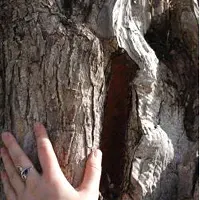A certain uncertainty
Written by

By Philip Patston
Most societies in the modern world invest a lot of time, money and importance in creating certainty*. Religious leaders preach about a certain god. Politicians debate over certain policy. Businesses plan for certain outcomes and profits. The media provides certain commentary. Accountants assure us of certain financial strategies.
By Philip Patston
Most societies in the modern world invest a lot of time, money and importance in creating certainty*. Religious leaders preach about a certain god. Politicians debate over certain policy. Businesses plan for certain outcomes and profits. The media provides certain commentary. Accountants assure us of certain financial strategies.
Then Nature, in the form of weather, earthquakes and other events, says, "Just a second, let's get one thing straight. Nothing is certain."
We respond in shock, terror, disbelief and, sometimes, even outrage. How could this happen? What will we do? All our planning gone to waste. How dare our security be ripped from us, without warning, planning, consultation!
Nature's a gorgeous bitch and she knows it. She's a dictator, an autocrat. She has right of veto. Everywhere. Everytime. In that caring way of hers, she doesn't give a toss.
The question is, when are humans going to get real and acknowledge that?
It's an interesting dialectic (my favourite word at present). We need security, stability and safety, yet when they're taken from us we dicover how resilient and adaptive we are. Unless we die, we survive. But the more secure, stable and safe we feel, the more we fear losing them and the more we react when we do lose them.
This week, following the Christchurch earthquake, I've been noticing my own feelings of anxiety, fear and vulnerability, imagining if something of Feb 22's magnitude happened in Auckland. My physical function is limited and I live alone. I have no idea what would happen to me. I've been driving around, imagining an earthquake, or volcanic eruption, or tsunami. What on earth would I do?
I don't know what the outcome would be. All I know is, I'd either live or die. If I were to die, I'd have to do nothing. If I were to live, I'd have to be creative, patient, resourceful, smart, enduring. I'd have to communicate, negotiate, navigate, reorganise, prioritise, in order to survive.
Interesting - it's only in writing the last paragraph that I have consciously realised this: nothing would change except the context. Whatever the situation – be it an emergency or day-to-day life - the behaviours needed to survive don't really change. The intensity, the risk and the unfamiliarity may increase, but surviving is surviving, whatever the stakes.
Humans are infinitely adaptable.
*As Brene Brown so eloquently explains in the TED Talk below, we are vulnerable too. Cantabrians have affirmed during the last week that, when we face and embrace our vulnerability, we increase our connection with each other, which is our fundamental purpose for being.
This much is certain.
Related Information: Dealing with trauma, stress and physhological reactions.